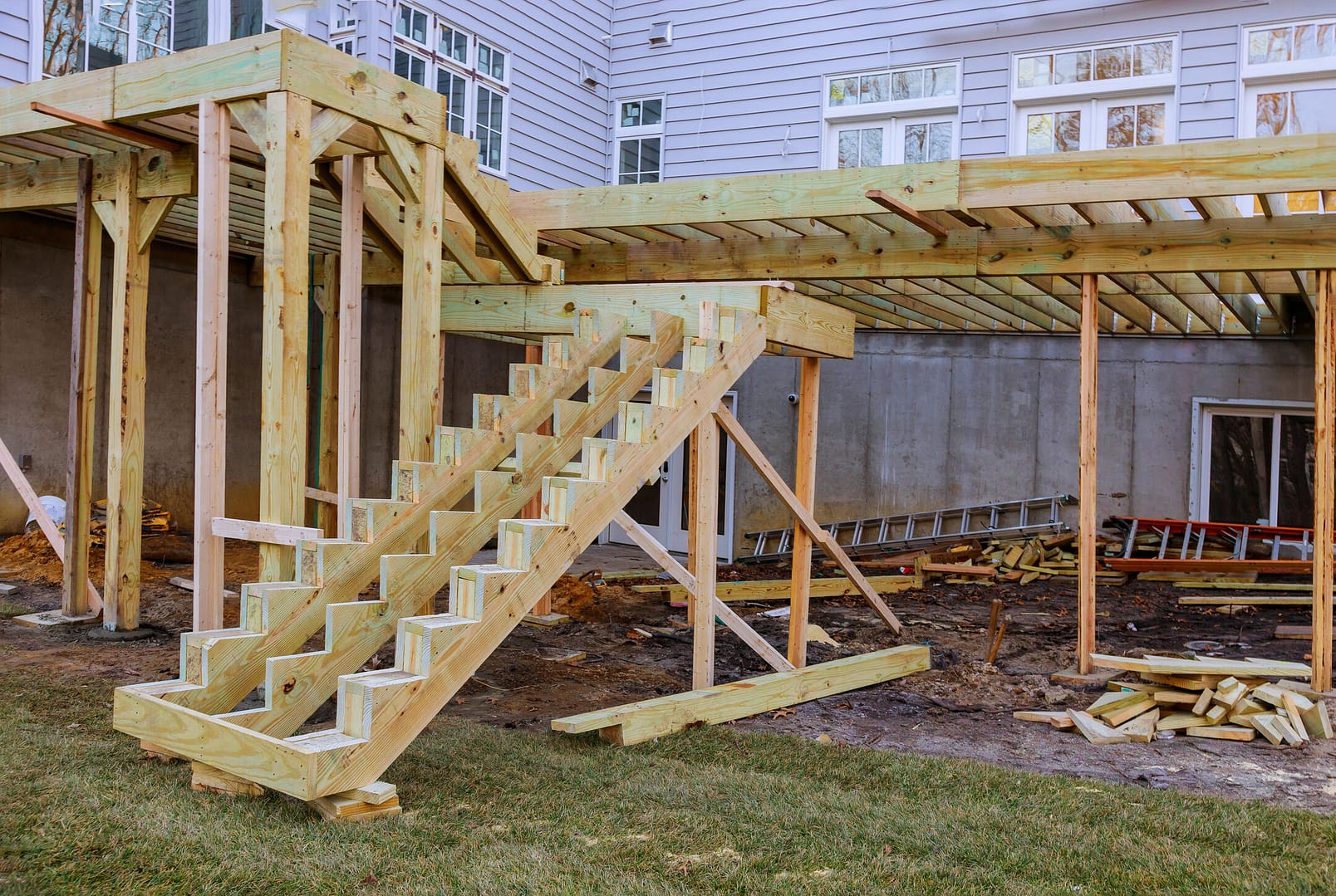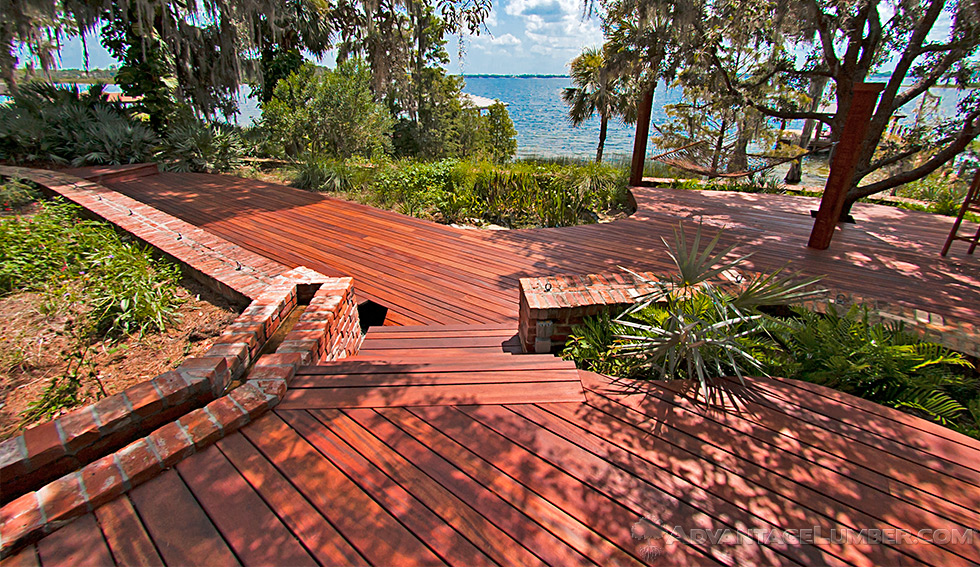A successful deck installation starts with thoughtful planning and a trustworthy crew.
A successful deck installation starts with thoughtful planning and a trustworthy crew.
Blog Article
Exactly how to Pick the Right Materials for Your Deck Setup Project
Choosing the appropriate products for your deck installation job can seem complicated. The secret is to balance your budget plan, layout preferences, and lifestyle needs to produce a deck that will enhance your exterior area for years to come.
Comprehending the Various Kinds Of Deck Materials
When getting started on a deck installation task, the option of materials ends up being a crucial decision. Composite materials, on the various other hand, are a blend of timber and plastic, giving toughness and resistance to weather aspects. By recognizing these distinctions, house owners can make an extra enlightened decision on the most ideal deck product for their certain needs.
Reviewing the Longevity and Maintenance Demands of Deck Products
Examining the longevity and upkeep demands of deck materials is an essential step in deck setup. Longevity involves the material's capability to withstand harsh weather, deterioration, and its long life. Cedar and redwood are naturally resistant to rot and pests, making them durable selections. On the various other hand, pressure-treated timber, while durable, might require more maintenance due to its susceptibility to breaking and buckling.
Understanding upkeep demands is equally important. Some products require routine sealing or staining to maintain their appearance and resist dampness damage, while others, like composite decking, require less upkeep. By examining these factors, one can select one of the most ideal decking material, making sure a balance in between longevity, maintenance needs, and visual appeal.
Expense Evaluation: Comparing Timber and Composite Decking
Although expense might initially look like a secondary problem, it is a considerable element when comparing wood and composite outdoor decking. Timber, typically a more economical choice, has a lower upfront expense. Over time, upkeep costs can accumulate, possibly making timber more expensive in the lengthy run. These upkeep costs might include discoloration, sealing, or changing damaged boards. On the various other hand, composite outdoor decking, while pricier originally, requires less maintenance, potentially minimizing long-term expenses. Yet, it's vital to keep in mind that composite decking isn't unsusceptible damage, and substitute prices can be high. As a result, possible deck proprietors need to consider their spending plan and determination to preserve their decks when determining between timber and composite outdoor decking.
Visual Appeals and Layout Flexibility of Decking Materials
While cost is an important factor to consider, the aesthetic allure and style flexibility of outdoor decking materials likewise play a considerable role in the decision-making procedure. Different materials supply differing degrees of visual charm. All-natural wood decking provides a classic, timeless look, while composite products supply a wide variety of shades and structures to suit varied preferences and styles. Similarly, layout adaptability refers to the ability to form and adjust the decking product to satisfy particular layout requirements. Timber, for circumstances, offers high design adaptability because of its convenience of cutting and shaping. Compound here products, while much less versatile in design, are still versatile enough for the majority of deck designs. These elements, consequently, are essential determinants in the option of outdoor decking product.
Environmental Effect of Decking Materials
When selecting decking products, one have to consider not just appearances and sturdiness, but also the environmental influence. It's important to assess the sustainability of products and discover recycled outdoor decking alternatives. In addition, recognizing the possible effect on local ecological communities will make certain a much more eco responsible selection.
Examining Product Sustainability
In the realm of deck building, analyzing material sustainability is a critical step. Composite decking materials often combine wood and why not look here plastic, minimizing the need for new timber yet enhancing reliance on fossil fuels - deck installation austin tx. Therefore, the selection of decking products should stabilize functionality, aesthetic appeals, price, and sustainability to guarantee a liable and durable setup.
Recycled Decking Choices

Composite outdoor decking is particularly popular due to its longevity and convenience of maintenance. Recycled plastic outdoor decking, on the other hand, is extremely resilient and requires minimal upkeep.

Impact on Local Environments
While the advantages of using recycled products for decking can not be overstated, it's equally vital to think about the broader ecological effects of these options. Appropriate disposal of old outdoor decking is crucial to lessening land fill waste. Basically, an eco-conscious deck project needs careful material option, lasting sourcing, and liable disposal.
Making Your Final Decision: Tips for Choosing the Ideal Deck Products
As the short article shifts into the subtopic of "Making Your view Final Decision: Tips for Picking the very best Deck Products", it is critical to recognize the range of deck products available. Striking an equilibrium between sturdiness and visual appeal is essential in this option process. The adhering to discussion will lead viewers in making an informed selection based upon these key factors to consider.
Recognizing Different Deck Materials
The job of choosing the right materials for your deck setup can appear discouraging because of the substantial range of alternatives available. Nonetheless, understanding the different products can streamline this process. Wood is a preferred choice, providing a traditional visual and price. Kinds of wood used consist of pressure-treated lumber, cedar, and redwood. Compound materials, made from a blend of wood and plastic, are low-maintenance and resistant to rot and bugs. Plastic or PVC decks are a lot more durable and require less maintenance than composite products, yet they can look much less natural. Lastly, aluminum decks are strong, lightweight, and immune to rot, however they are additionally one of the most pricey option. Each product has its very own benefits and disadvantages, making it important to consider your details demands prior to making a final choice.
Resilience vs. Aesthetics Equilibrium
Stabilizing durability with aesthetic appeals can be an obstacle when selecting deck materials - deck installer austin. High-traffic locations might demand long lasting products like composite outdoor decking, which stands up to wear and tear yet might do not have the all-natural elegance of wood. Property owners need to strike a balance, considering both the deck's sensible demands and their aesthetic preferences.
Final thought
In final thought, choosing the right materials for your deck installation task calls for mindful factor to consider of aspects such as toughness, upkeep, expense, aesthetic appeals, and ecological effect. Whether you choose typical timber or composite materials, your selection ought to align with your spending plan, design choices, and way of living. Eventually, the most effective outdoor decking product is one that improves your exterior space and offers pleasure for years to come.
Report this page